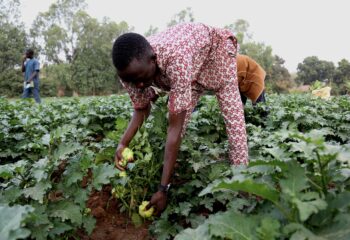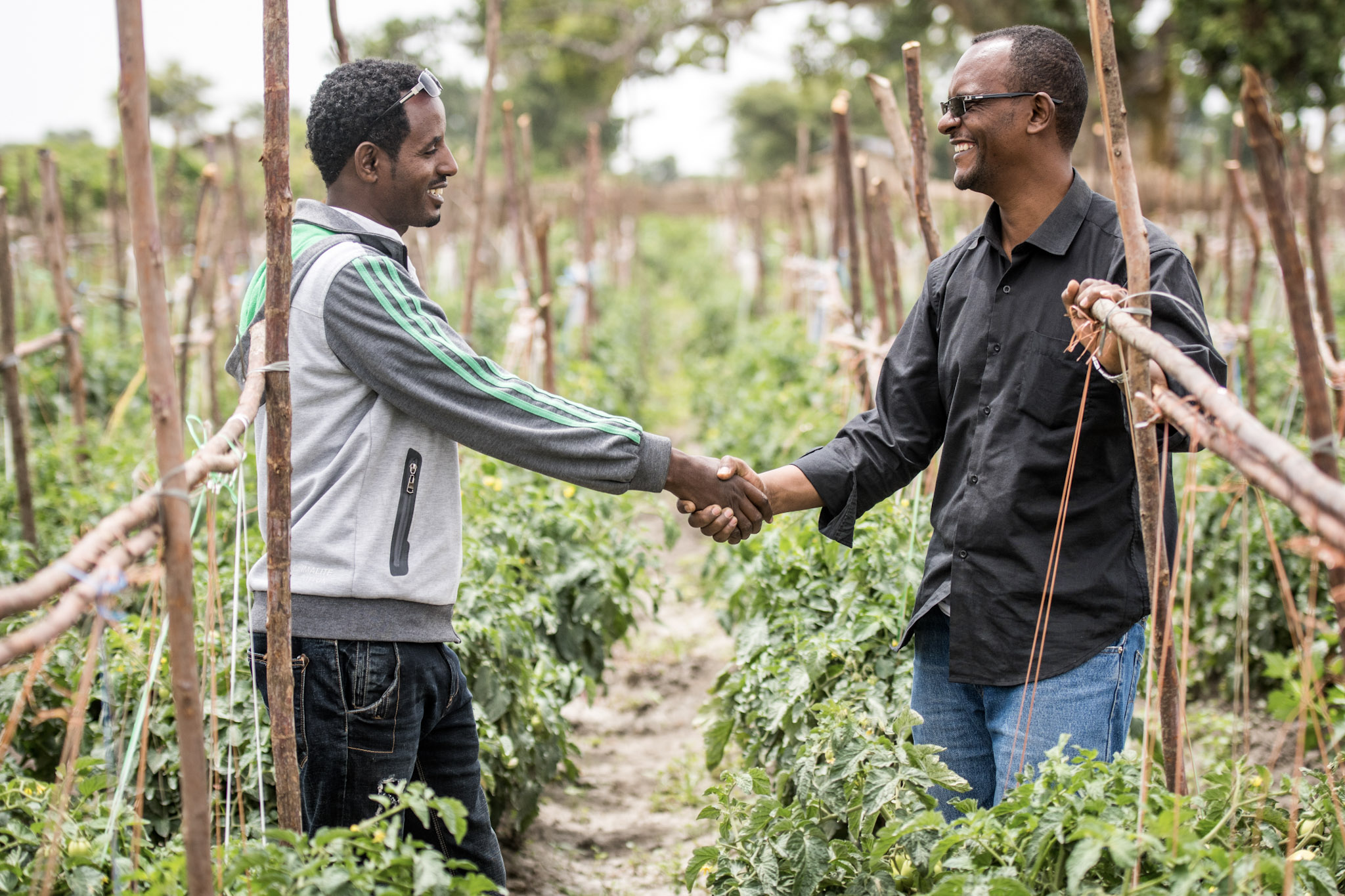Nigeria is the world’s top producer for cassava, producing more than 42 million metric tons annually. Cassava’s starchy, tuberous root is a good source of carbohydrates and is cultivated for subsistence in many developing countries. Though cassava has a very short shelf life (less than two days), companies now have technology to make a dry starch from the raw cassava. This starch can be used to make many products from pasta to – wait for it – beer.
There’s only one problem. Many cassava farmers do not live close to a processing center and, as a result, can lose much of their harvests.
Nigeria’s cassava farmers are about to receive a strong boost from IFDC’s public-private partnership (PPP) program, 2SCALE PPPs work out deals between large companies and smallholder farmers to arrange a production chain for mutual benefit. This particular new partnership will promote Nigerian cassava production for use in brewing beer and will create additional resources for Nigerian farmers in general. The boost comes from a Memorandum of Understanding signed by IFDC; Psaltry International, Ltd., a Nigerian cassava processor; and Nigerian Breweries, a subsidiary of Heineken. Dutch Minister for Foreign Trade and Development Cooperation Lilianne Ploumen attended the signing ceremony as part of her trade mission with leading Dutch companies.
Previously, a farmer might have cultivated produce and then only hoped for a beneficial sale at market prices (if he or she could process the crop quickly enough). The PPP offers farmers a more secure buyer – Psaltry International – who will buy and process the produce before it spoils.
Now, back to the beer. Most beers are brewed using malted cereal grains, such as barley and wheat. Nigeria’s climate, however, is not conducive to growing these crops, so local brewers have to be innovative and utilize the abundant crops at hand. For this reason – and for supporting smallholder farmers – many African brewers are beginning to use cassava as a base.
With an industrial-sized demand supporting farmers, this effort will push cassava production toward a cash crop status for smallholder farmers. The newly formed PPP will improve conditions for cassava farmers, providing a stable market for them to commercialize their crops.
Who would have thought beer could help cassava farmers in Nigeria?



